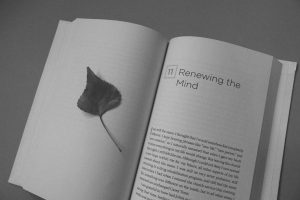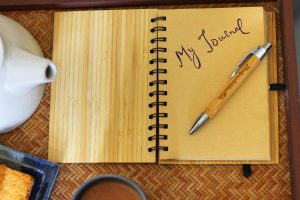I don’t like journaling; is recovery even possible?
At some point, you’ve heard likely your therapist or coach suggest that eating disorder recovery is possible and that are some simple journaling exercises that will help. If you’re like many, I’m sure your first thought went something like:
“Ugh, I hate writing.”
I hear you. And the good news is that recovery is possible without journaling.
There are so many other strategies that WILL work for you – and they can complement your personality and align with your lifestyle.
Recovery is possible; 5 alternatives to traditional journaling:
1) Voice Memos or Video Journal
…Yes, I’m asking you to talk to yourself. Yes, really.
Record voice memos, keep a video journal, or speak to yourself during your commute or in the shower.
There’s no one way to do this, so get creative! Speaking has many of the same benefits as writing. It slows down your cognitive processing so you can detect patterns and shift your perspective.
Keep in mind, this is very different from “thought dumping”. The intention is to not only speak your thoughts, but to detect, reject, and redirect any lies the ED voice may be telling you.
Some great starter questions:
- “What am I feeling? Can I summarize it in one word?”
- “Is there another perspective?”
- “What advice would I give to a friend in this same situation?”
- “If I wasn’t battling an ED, what would I do?”
- “What can I do next time to truly meet my needs?”
- “When someone says recovery is possible, how do I feel about that?”
If this feels overwhelming, I encourage you to work with a coach or a therapist and ask them to verbally process together. Practicing with a professional is a great way to learn the skills you need to apply in your own life.
2) Start a Photo Journal
Self-expression and self-discovery isn’t confined to words alone. Start a photo journal and collect images that visually represent what you struggle to put into words.
These can be symbolic photos that have a special meaning to you or could also be photos that offer hope or remind you that recovery is possible.
3) Meditation and Deep Breathing
Try this with me: breathe in through your nose for 3 seconds, hold for 4, release for 3 through your mouth.
Now, on the breath in, add a mantra, prayer, or intention. You can also choose the name(s) of loved ones who motivate you to recover, like your kids or your partner.
Possible mantras or single word intentions:
- “Courage over comfort”
- “Fear is my green light”
- “Resilience”
- “I am safe in my body”
- “I am allowed to be imperfect”
- “Recovery is possible for me”
On the exhale, expel any negativity, fear, or doubt. Picture it emptying with your breath, clearing space in your mind and body to welcome a new perspective.
4) Use Charts or Bullet-Points
Journaling doesn’t have to require paragraphs… or even full sentences. Start a bullet journal about your daily wins, gratitudes, goals. Or, chart your habits, activities, and plans. This chart should depict progress and remind you that recovery is possible.
Have fun with this – buy fun stickers and posterboard, use Excel, or download an app. As long as you have a sustainable way to shift your focus, collect information, and track your consistency, you’re on the right path.
5) Schedule Playtime
As I always like to say: “If you’re in eating disorder recovery, you need to get serious about playtime.”
Much like journaling, having FUN can give you much-needed reprieve from busyness, and a way to reconnect with yourself.
Make small, but frequent commitments. I recommend starting with 15-minute commitments, 3 times a week.
Some ideas for fun:
- Learn a new language
- Break open a new puzzle
- Schedule a family board game night
- Read one chapter of a book
- Blast music and have a dance party with the kids

So often, we lose our identities during an eating disorder. A large part of outshining your eating disorder involves reconnecting with the TRUE you.
Eating disorder recovery is possible without journaling
You get to do this on your terms – re-define “journaling,” and carve your own path because eating disorder recovery is possible with or without journaling.
This blog post was written by Coach Beverly. You can read more about her here.




